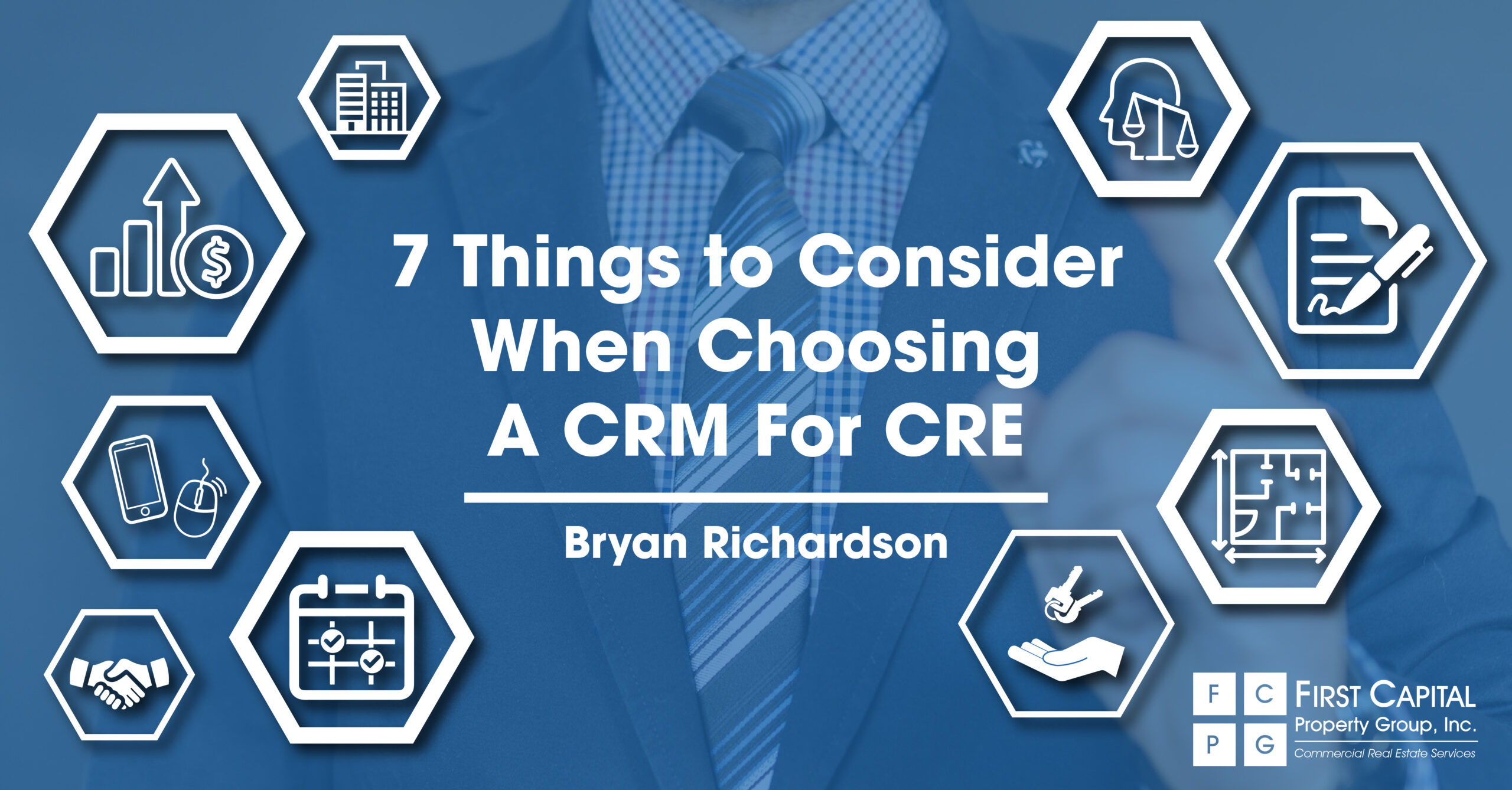
7 Things to Consider When Choosing A CRM For CRE
Bryan Richardson
February, 2023
Finding the right CRM (Customer Relationship Management) system is essential for any business, especially for commercial real estate brokers who need to manage a large number of clients, properties, and transactions. The right CRM can help brokers keep track of leads, manage their pipeline, and close deals more efficiently. However, with so many options available, it can be challenging to find the best CRM to fit the specialized needs of CRE brokers.
In addition, if you’ve been in sales for a long time, you can probably come up with examples of companies choosing the wrong CRM for their specific team or industry. This can quickly turn into a lot of wasted money and time when their team quits using it after a few months, because it was too complicated to learn, required too much work to manage, or didn’t integrate well with the other tools they used daily.
Your team was hired to close deals, not manage data, so any CRM you choose has to make their job easier and enable them to serve their clients better. Here are 7 key factors to consider when choosing the right CRM for your commercial real estate business:
- Customizability: Commercial real estate brokers often have unique business processes, and a CRM that is highly customizable can help them streamline their workflows and meet their specific needs. Look for a CRM that offers the flexibility to adjust fields, create custom reports, and automate tasks to fit your team’s processes.
- Lead Management: Lead management is critical for commercial real estate brokers, and a good CRM should make it easy to capture and manage leads. Look for a CRM that provides a centralized database to store lead contact information, automated lead tracking, and the ability to easily assign leads to specific team members.
- Property Database: A CRM for commercial real estate brokers should also have robust property database features, including property listings, property details, and property contacts. The CRM should also provide easy-to-use tools for tracking property views, offers, and on-going negotiations.
- Reporting and Analytics: Good data management is crucial for commercial real estate brokers, and a CRM should provide robust reporting and analytics capabilities. Look for a CRM that provides real-time insights into your pipeline, sales performance, and client activity, so you can make informed decisions about your business.
- Mobile Accessibility: Commercial real estate brokers are often on the go, and a good CRM should provide mobile accessibility, so you can manage your business from anywhere, at any time. Look for a CRM that offers a mobile app that is user-friendly and integrates seamlessly with the desktop version.
- Integration with Other Tools: Commercial real estate brokers often use a variety of other tools, such as email, calendars, and marketing automation systems, and a good CRM should integrate with these tools seamlessly. Look for a CRM that offers integrations with popular tools, such as Outlook or Google Workspace, to streamline your workflow.
- Pricing: Finally, consider the cost of the CRM when making your decision. Some CRMs offer a free version with limited features, while others require a monthly or annual subscription based on how many users you will need. Consider your budget and the features you need when choosing a CRM.
Finding the right CRM for commercial real estate brokers requires careful consideration of the features and capabilities that are essential for your business. By considering the factors outlined above, you can find a CRM that will help your team manage clients, properties, and deals more efficiently and effectively.
